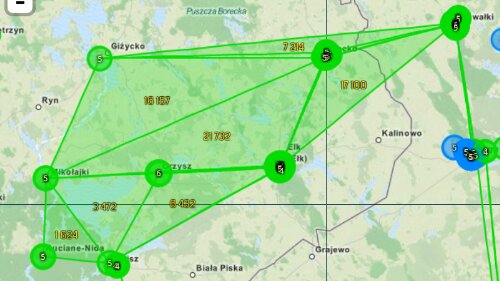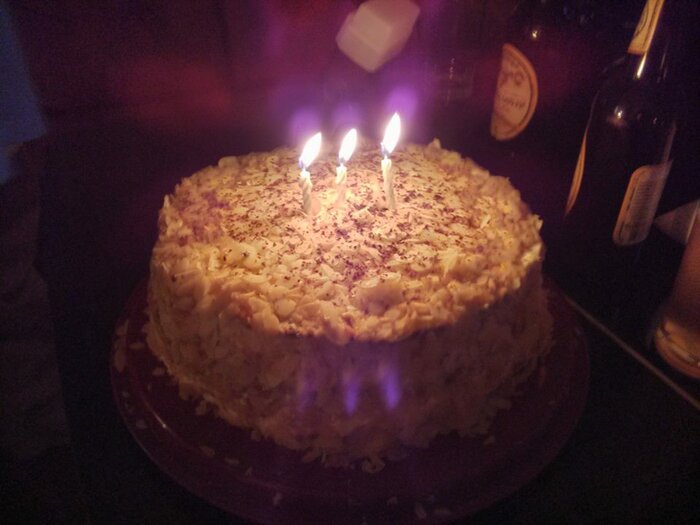This time I took two weeks for trip to my family. We visited Olecko and surrounding cities.
On second day I got several email from Niantic with accepted/rejected information about portals I submitted around one month earlier. And the number of those in Olecko went from 3 to 13 ;-)
But Ingress was taking just very small amount of time as there were better things to do. Visiting family, meeting friends, showing interesting places to my daughter etc.
But one day some L8 players arrived in neighbourhood. So after some chatting we agreed on making some fields to show local Resistance players that green is nicer colour :-D
There were few players involved: @marecki007 @qringo @radmus @szelka and me. We also helped @Buzka to get from L2 to L4 so he will be able to keep local portals green for longer.
Today map:

There was also control field Ełk - Augustów - Suwałki but it was destroyed twice by local Resistance player.
I think that end result is nice especially as it was not planned before.
